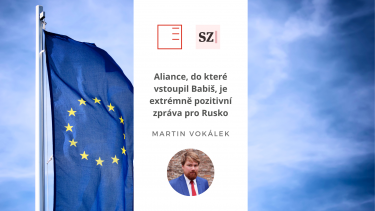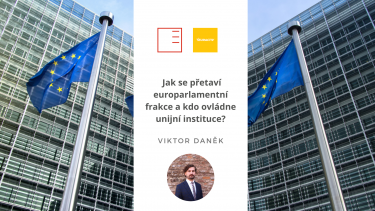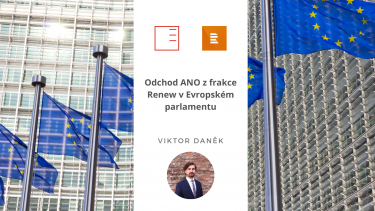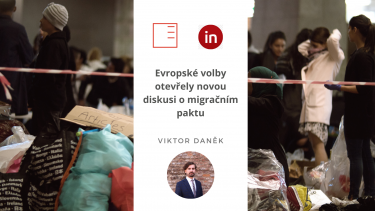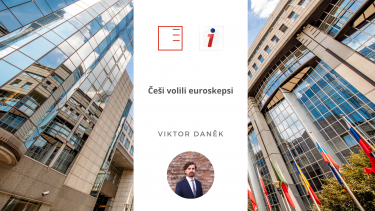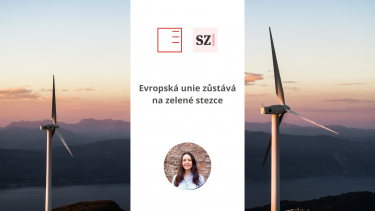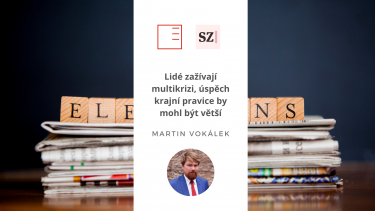Seznam Zprávy | The political group in the EU that Babiš has joined is extremely positive news for Russia
Former Czech Prime Minister Andrej Babiš has announced the formation of a new alliance Patriots for Europe for the European Parliament. For the time being, in addition to the ANO movement, it consists of Hungarian Prime Minister Viktor Orbán's Fidesz and Herbert Kickl's Austrian FPÖ party. Martin Vokálek, executive director of EUROPEUM Institute, comments on its formation and importance.
Show more
Euractiv.cz | Post-election reshuffles. How will the European Parliament factions transform and who will dominate the EU institutions?
The key issues for the new term in the EU do not end with the European elections. Forces in European Parliament continue to shift depending on factions, while leaders select institutional leadership. How will the elections and the composition of the European Parliament influence the future functioning of the EU? And who will lead it? Viktor Daněk, Deputy Director of EUROPEUM Institute, answered these questions for Euractiv.cz.
Show moreČRo Plus | Withdrawal of ANO from the Renew Europe party in the European Parliament
The ANO political movement will withdraw from the liberal Renew Europe faction in the European Parliament, as it says it cannot promote the programme it went into the European elections with. Viktor Daněk, deputy director of the EUROPEUM Institute, commented on this.
Show moreNovinky.cz | The European elections have opened a new debate on the migration pact
After Filip Turek and Kateřina Konečná achieved significant success in the European Parliament elections in the Czech Republic, a debate has arisen about their stance on the migration pact. Turek aims to free himself from its constraints, while Konečná advocates for its complete abolition in its current form. But is this even feasible? Viktor Daněk, deputy director of EUROPEUM Institute, commented this topic for Novinky.cz.
Show moreiDnes.cz | Czechs voted Euroscepticism
European Parliament elections have been held in the EU Member States, but they have not shown the change of the course. According to Viktor Daňek, deputy director of EUROPEUM Institute, the elections did not shake Europe too much, but the future parliament will slightly lean more to the right.
Show moreSeznam Zprávy | The European Union remains on the green path
The green parties has weakened, while the eurosceptic, far-right and climate-sceptic factions have strengthened. However, this is unlikely to be a significant obstacle to the implementation of the Green Deal for Europe. The parties behind it have retained the most seats. What implications will the results of the European Parliament elections have for the Union's climate and environmental policy over the next five years? Senior researcher of EUROPEUM Institute Kateřina Davidová commented for Seznam Zprávy.
Show more
Seznam Zprávy | People experience multi-crisis, success of the far right could be greater
Despite the rise in support for the far right in most countries, the direction of the EU will not fundamentally change. The People's Party maintains its position as the strongest faction and gains support from centrist parties. The victory of the extreme right in the elections signals the strengthening of conservative and populist parties. However, it is expected that key issues such as the environment and migration will remain on the agenda. The election result does not signify a radical change but serves as a signal to focus on voters favoring conservative and far-right parties. Martin Vokálek, Executive Director of EUROPEUM Institute, commented on the results for Seznam Zprávy.
Show more
TV Nova | How to make EU elections more attractive in the Czech Republic
Since 2004, Czechs have been able to vote in European Parliament elections. However, interest is low compared to other countries. Why is this the case and how could voter turnout be increased? Martin Vokálek, Executive Director of EUROPEUM, discussed this topic.
Show more
EURACTIV.cz: "Being prime minister is still more than being a heavyweight in Brussels." Boss von der Leyen is falling apart Commission
The head of our Brussels office, Žiga Faktor, spoke to EURACTIV.cz about the departure of Dutchman Frans Timmermans from the European Commission. The influential vice-president of the European Commission was lured by the prospect of the prime minister's chair in the Netherlands, and his boss, Ursula von der Leyen, has to manage without him. But her difficulties do not end there, a year before the European elections.
Show more
Staroměstské náměstí 4/1
Prague 1 - Staré Město
110 00
tel.: +420 212 246 552
email: europeum@europeum.org
https://www.europeum.org
